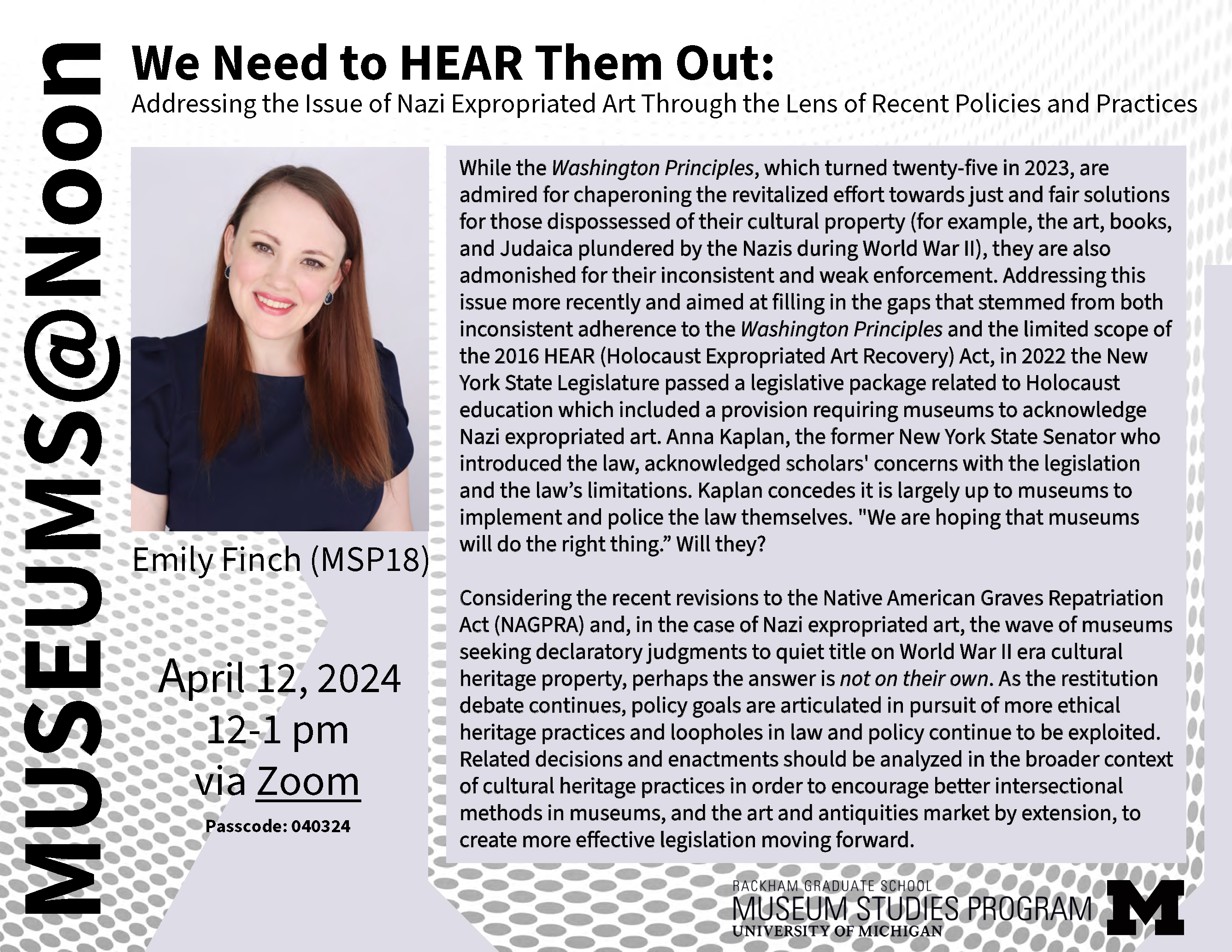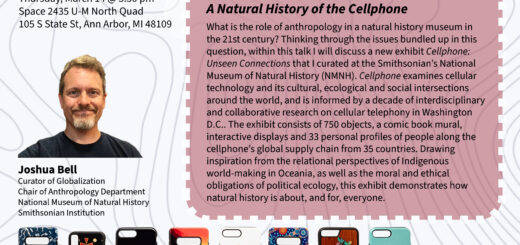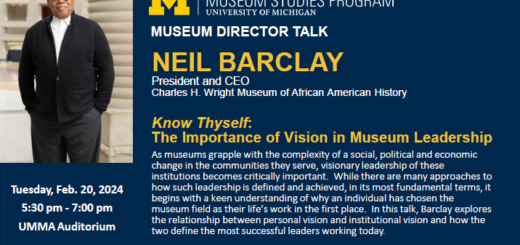April 12 Museums@Noon: We Need to HEAR Them Out: Addressing the Issue of Nazi Expropriated Art Through the Lens of Recent Policies and Practices

We Need to HEAR Them Out: Addressing the Issue of Nazi Expropriated Art Through the Lens of Recent Policies and Practices
Emily Finch (MSP18)
April 12 from 12:00 pm – 1:00 pm
While the Washington Principles, which turned twenty-five in 2023, are admired for chaperoning the revitalized effort towards just and fair solutions for those dispossessed of their cultural property (for example, the art, books, and Judaica plundered by the Nazis during World War II), they are also admonished for their inconsistent and weak enforcement. Addressing this issue more recently and aimed at filling in the gaps that stemmed from both inconsistent adherence to the Washington Principles and the limited scope of the 2016 HEAR (Holocaust Expropriated Art Recovery) Act, in 2022 the New York State Legislature passed a legislative package related to Holocaust education which included a provision requiring museums to acknowledge Nazi expropriated art. Anna Kaplan, the former New York State Senator who introduced the law, acknowledged scholars’ concerns with the legislation and the law’s limitations. Kaplan concedes it is largely up to museums to implement and police the law themselves. “We are hoping that museums will do the right thing.” Will they?
Considering the recent revisions to the Native American Graves Repatriation Act (NAGPRA) and, in the case of Nazi expropriated art, the wave of museums seeking declaratory judgments to quiet title on World War II era cultural heritage property, perhaps the answer is not on their own. As the restitution debate continues, policy goals are articulated in pursuit of more ethical heritage practices and loopholes in law and policy continue to be exploited. Related decisions and enactments should be analyzed in the broader context of cultural heritage practices in order to encourage better intersectional methods in museums, and the art and antiquities market by extension, to create more effective legislation moving forward.
Emily G. Finch is an honors JD/ Entertainment, Arts, and Sports Law LLM Candidate on the art law track at the University of Miami School of Law. She graduated with her Master of Science in Information (Libraries, Archives, and Digital Curation) from the University of Michigan in 2019, and was a member of the Museum Studies Program’s 2018-19 cohort. Emily received her BA from Kalamazoo College in 2017 (majors in English: Literature and Cultural Studies and History, Minor: Political Science, and Concentration: American Studies). Prior to law school she served as Assistant Professor and Scholarly Communication and Copyright Librarian at Kansas State University and as Library Futures’ Community Fellow. Emily is building an interdisciplinary career at the intersection of law, ethics, and policy in cultural heritage spaces with a focus on ethical stewardship practices and access to information. Emily is a lifelong learner and in her free time enjoys community service, reading, baking, and traveling (scheduling as many museum and UNESCO World Heritage Site visits as her companions allow her).
Click here to attend via Zoom.


